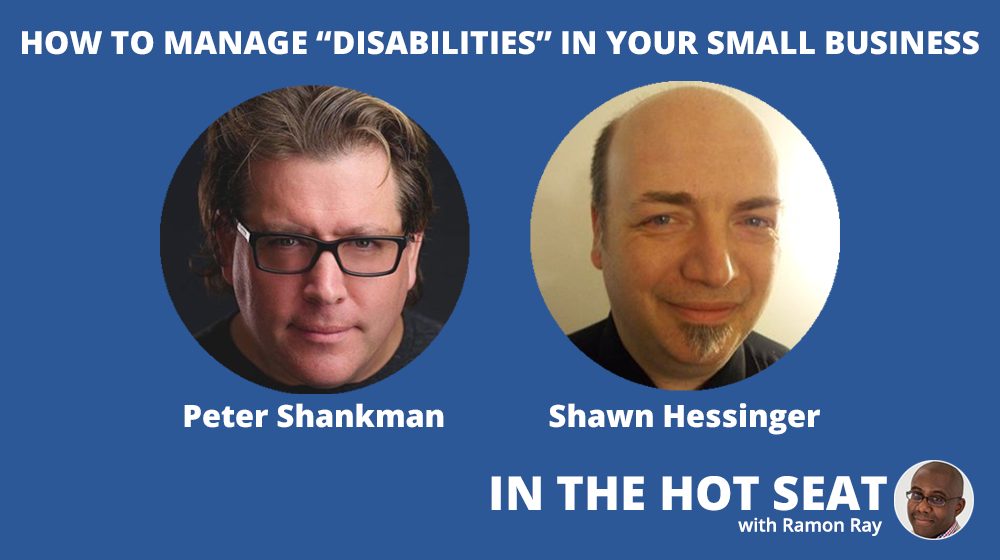The word “disability” tends to have a negative connotation. But in the business world, things that some people would consider to be a disability can actually offer great benefits.
The most recent episode of “Hot Seat,” a series hosted by Ramon Ray, focused on the topic of “disabilities” and how different ways of thinking can impact how businesses work. The episode featured a conversation with Peter Shankman, founder of HARO and author of the book Faster Than Normal about his experience with ADHD, and also Shawn Hessinger, Executive Editor of Small Business Trends.
The Benefits of ADHD
Shankman, who was officially diagnosed with ADHD in his mid-30’s, doesn’t like the word “disability.” He feels that his ADHD is more of a gift. And the same can be said for other conditions and differences that are actually fairly common.
Here are some highlights from the conversation to help your small business be better equipped for handling disabilities or different ways of thinking.
- Lots of entrepreneurs fall onto the neuro-atypical scale. People with ADHD or other conditions that cause them to think differently often are drawn to entrepreneurship because of their abilities to look at problems in a unique way. Many also don’t thrive in traditional jobs, especially with huge corporations that force everyone to adhere to specific standards rather than embracing individuality.
- Be aware of how your brain works. Whether you have an officially diagnosed condition or not, each person’s brain works a bit differently. Shankman compared his experience with ADHD to learning to “drive” his faster car with different handling. Having that self-awareness can be key to any entrepreneur or employee’s success.
- Medication isn’t the only answer. While it does seem to be a popular solution, Shankman believes it’s not the only way to deal with certain conditions or differences. The entrepreneur says he has found plenty of ways to manage his ADHD without medication. For example, he goes to the gym every morning as a way to help his brain produce the dopamine his brain doesn’t produce on its own.
- Embrace employees with differences. Chances are, some of your business’s hires are going to be somewhere on the neuro-atypical scale too. So you need to be prepared to work with people who don’t always conform to what you believe to be “normal.”
- Don’t make them behave like everyone else. Applying blanket policies to your small business team can be counterproductive. In order to get the most out of your team, you need to actually get to know them and give them the ability to succeed in the way they work best.
- Give them the tools they need to succeed. You can also benefit by offering them the tools that will make it easier for them to work effectively, whether it’s productivity tools, access to a gym, standing desks or something completely different.
- “Disabilities” can be an advantage. Whether you have a different way of thinking or members of your team do, it’s not something you should think of in a negative sense. People who think differently can offer plenty of strengths as long as you understand how they work best.
- Learn how to market to people who think differently. Just as your business is likely to hire people with different ways of thinking, you’re also likely to have customers that fall into similar categories. So you should take that into account when shaping your marketing and communications strategies. For example, people with ADHD tend to have shorter attention spans, so you need to create materials that grab their attention right away.
- Work to your strengths. Every entrepreneur works differently and has different strengths. So you need to build your environment to suit your specific strengths and weaknesses rather than going with whatever seems to be the norm or what “experts” have told you to do.
- Take care of your physical and mental health. Finally, no business owner, employee or person can find success if they don’t take care of themselves personally. So make your physical and mental health a priority.
These are just a few of the insights that were discussed during the episode, which was recorded on November 13. You can learn more about Shankman and his various entrepreneurial endeavors on his website and view the video of the full conversation below.
